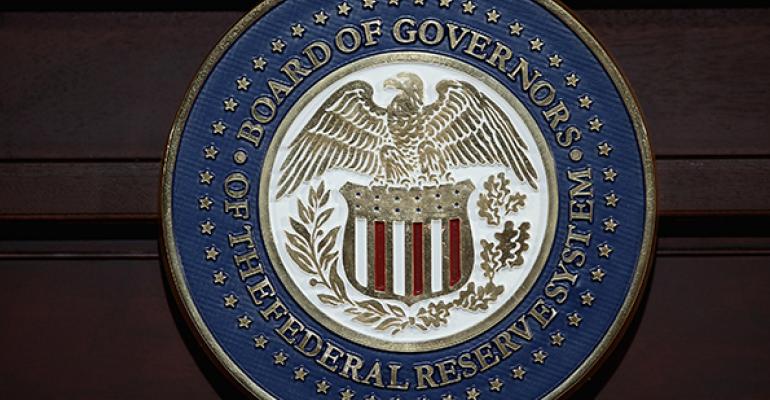By Ben Bain and Jesse Hamilton
(Bloomberg) --Wall Street’s long campaign to chip away at the toughest trading restriction imposed on banks after financial crisis is finally paying off under President Donald Trump.
The Federal Reserve Board, now led by Trump appointees, will meet Wednesday to start rolling back the Volcker Rule, a regulation that was key to Washington’s efforts to make the industry safer following the 2008 meltdown.
Volcker is meant to prevent banks with federally-backed deposit insurance from suffering outsized losses by prohibiting them from making speculative market bets with their own capital. But firms contend the rule is unnecessarily complex and almost impossible to adhere to, arguments their armies of lobbyists have aggressively made since it took effect in 2014.
Regulators have shown a greater willingness to listen to such grievances, and are expected to propose a revamp that would give banks more leeway to presume their trades comply with the rule, people familiar with the matter have said. That would be an important shift from the current situation, in which firms face a tough burden to prove trades are permissible.
The Fed will be the first agency to vote on whether to seek public comment on the overhaul, followed by agencies including the Securities and Exchange Commission and the Federal Deposit Insurance Corp. With legislative changes difficult to get through a politically divided Congress, regulators have been crucial to Trump’s drive to dial back constraints like Volcker that impact the U.S.’s biggest banks.
“It will be among the most significant set of regulatory concessions Wall Street banks will get for the foreseeable future,” Ian Katz, an analyst at Capital Alpha Partners in Washington, wrote in a report this week.
Volcker, named for former Fed Chairman Paul Volcker, banned what’s known as proprietary trading -- the practice of banks investing for their own benefit rather than buying or selling securities to fulfill requests from customers. It also restricted lenders from investing in hedge funds and private-equity firms.
The expected revisions, known within the government as Volcker 2.0, would likely reduce banks’ compliance costs by easing some of the demands that they dislike most, including the assumption that positions lenders hold for fewer than 60 days are proprietary, Bloomberg News reported earlier this month.
Regulators may also make it easier to take advantage of exemptions in Volcker, such as one that gives banks broad flexibility to execute trades that serve as hedges against potential losses, Bloomberg separately reported. Banks now have to submit continuous and precise documentation to prove they are hedging, requirements they say are unreasonable. A full repeal of Volcker is seen as highly unlikely, because it would require an act of Congress.
Regulators generally give the public months to weigh in on their proposals to overhaul rules, and then must hold a second round of votes to make changes binding.
Revising Volcker could be a particularly drawn out process because five different agencies must sign off on any tweaks -- the Fed, SEC, FDIC, Office of the Comptroller of the Currency and Commodity Futures Trading Commission. For comparison, Volcker itself wasn’t approved until three years after its inclusion in the 2010 Dodd-Frank Act.
“A final rule in 2018 is no sure thing,” Capital Alpha’s Katz wrote in his note.
To contact the reporters on this story: Ben Bain in Washington at [email protected] ;Jesse Hamilton in Washington at [email protected] To contact the editors responsible for this story: Jesse Westbrook at [email protected] Gregory Mott





